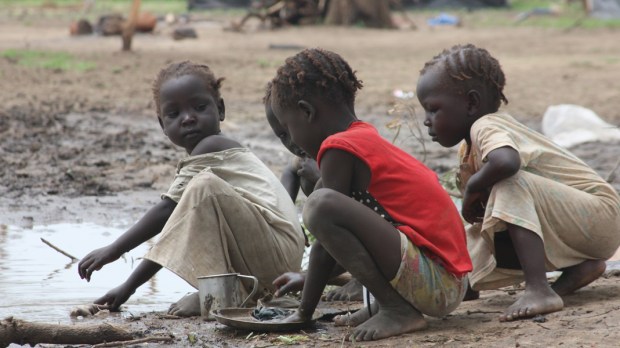It’s often the case that war’s victims extend beyond battlefield combatants, affecting innocent civilians because of violence or disruption of service. Perhaps there is no place in the world right now where is that more true than South Sudan.
Less than two years after that country won independence from Sudan, following nearly a quarter century of conflict between the Khartoum government and rebels in the South, a civil war erupted in South Sudan itself in 2013. Fueled by personal and ethnic rivalries, the conflict has killed tens of thousands of people and is still going.
According to the Norwegian Refugee Council, record numbers of aid workers were killed by gunfire in the five-year conflict. One hundred aid workers have been killed since the conflict broke out, with South Sudanese staff at the highest risk.
“Too many of our colleagues have been struck,” Jan Egeland, Secretary General of the Norwegian Refugee Council, wrote at the website of the Thompson Reuters Foundation. Egeland said that earlier this year, armed men attacked and shot at an International Committee of the Red Cross field base in the northern town of Leer. “Staff were evacuated to the capital Juba, and thousands of hunger-hit civilians were left without farming seeds and tools,” he said.
Egeland warned that famine “looms once again” in South Sudan. “More civilians are today without food in more places than ever before in the country’s history. A lack of access to communities and attacks on aid workers will push already food deprived families to the brink of starvation.”
He welcomed the news of a possible peace deal last month, but said the deal would need to be implemented at all levels “for it to have any meaningful impact.”
Last week, the New York Times reported that South Sudanese rebels refused to sign the latest draft of a peace deal that would have ended the civil war.
“President Salva Kiir and the leader of the main rebel group, Riek Machar, signed a cease-fire and power-sharing agreement earlier this month, having reached a preliminary deal in June that intended to end the fighting that first broke out in 2013,” the Times reported. “But Mr. Machar and another rebel group refused on Tuesday to sign the latest draft of the agreement, saying that disputes over power sharing and a new constitution had not been sufficiently addressed.”

